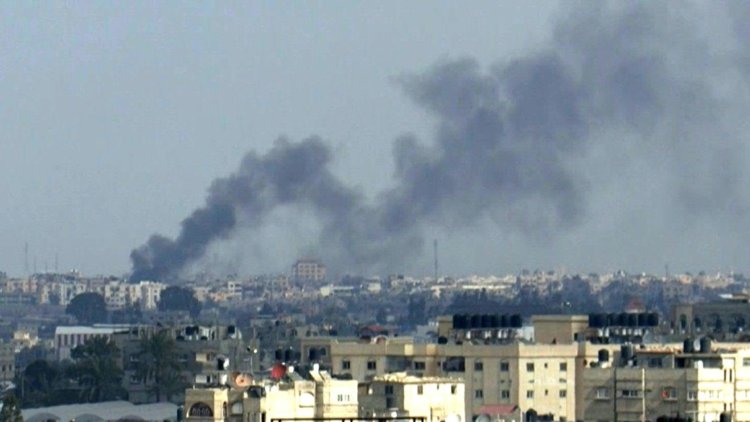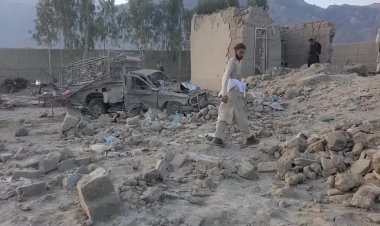Gaza Crisis Deepens

The United States vetoed a UN Security Council resolution calling for an immediate ceasefire in Gaza, with Israel continuing to bombard the territory as concern grew about the growing humanitarian crisis.
Global powers trying to navigate a way out of the spiraling crisis have come up short, with so-far fruitless push by mediators to reach a truce, and two rival ceasefire proposals put forward at the UN.
Washington vetoed the first proposal, drafted by Algeria, which demanded an immediate humanitarian ceasefire and "unconditional" release of all hostages kidnapped in the October 7 attacks.
As diplomatic powers wrangled, Israel continued to hit Gaza with air strikes and ground combat that killed a total of 103 Palestinians in the past 24 hours, its health ministry said.
The United Nations has repeatedly sounded alarm over the dire humanitarian situation in Gaza and warned food shortages could lead to an "explosion" of preventable child deaths.
The World Food Programme resumed deliveries but its convoy was met with gunfire, violence, looting, people trying to climb onto the vans, and a truck driver was beaten, it said.
The WFP acknowledged that halting deliveries meant the situation "will deteriorate further and more people risk dying of hunger".
More than four months of relentless fighting have flattened much of the coastal territory, pushed 2.2 million people to the brink of famine and displaced three-quarters of the population, according to UN estimates.
After months of struggling for a united response, all EU members except Hungary called for an "immediate humanitarian pause".
They also urged Israel not to invade Gaza's southernmost city of Rafah, where some 1.4 million Palestinians are sheltering, many in makeshift tents.
The city -- the last untouched by Israeli ground troops -- is the main entry point for desperately needed relief supplies via neighboring Egypt.















